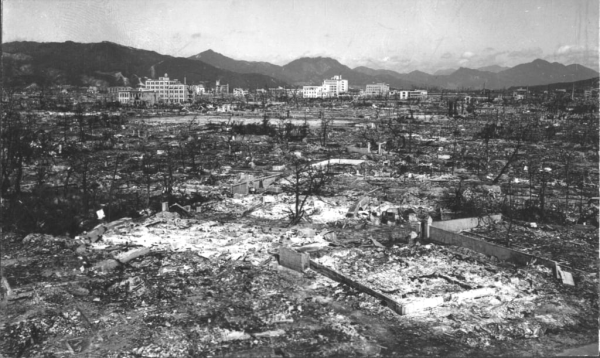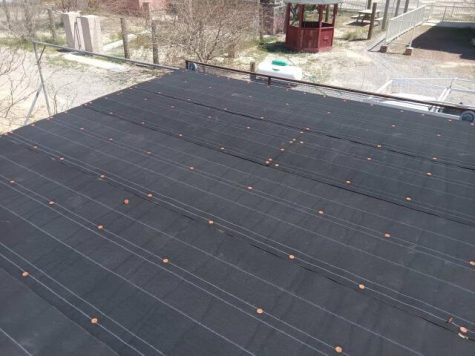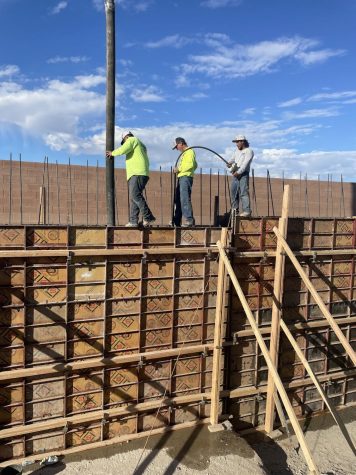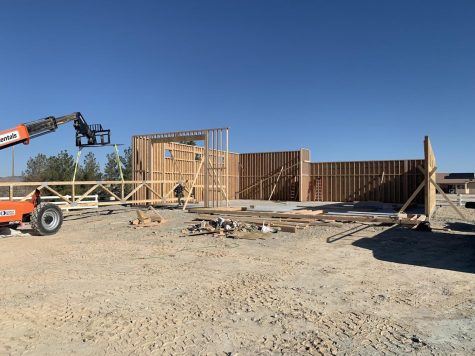4 Minute Disaster
Our new passing period schedule has been receiving quite the criticism.
October 6, 2017
Running at 20 mph to your next class, huh? Not surprisingly, this is the same case for a number of students lately. Socializing, bathrooms, and walking have become a thing of the past because of this change, and even grabbing your materials from your locker is a risk for a tardy.
The new passing period policy has been in effect for 6 weeks now, affecting students negatively in a variety of ways. Students have been forced to skip going to the bathroom, and they are running to class because of this faulty change.
The amount of tardies can increase at an alarming rate if this keeps going on, because some students just cannot reach their class in time with only 4 minutes to travel from building to building.
The time was decreased by 2 minutes from last year’s passing period schedule (6 minutes). This decrease in time was applied to accommodate for a collaboration that teachers attend every morning, called the PLC.
The PLC (Professional Learning Community) is a 45 minute time span in which teachers meet up and plan/collaborate for their daily lessons. During the last 15 minutes, teachers begin to prepare their lessons and get them ready for students.
What do students think of this change? The criticism has been mixed, with most students complaining that the rush forces them to make it to class in time and avoid spending time with friends, or communicating with their previous period teachers about problems they may be having with assignments.
Kathryn Daffer, at PVHS said, “I feel like they are kinda short for a passing period because i don’t have time to go to my locker and then go to my next class. But I also feel like it is just the right amount because I can come from the second floor and still make it to weights and have a minute left to do whatever.”
Due to this difference in time span, students have drastically lost the ability to communicate with their fellow peers. The loss in communication between students is extreme, since the social aspect of school is an important role in a student’s teenage years.
Another minute could be added to the passing period schedule to help give students more time to reach their classes. They would have more time to get to the bathroom and grab supplies.
Many students have complained because of tardies. Some classes are across the entire school, making it practically impossible to reach them in time.
Mary Smith, a junior, was asked her opinion, “I feel as if the 4 minute passing period is unfair to the student body as a whole. We went from being able to walk to all of our classes, as well as going deep into our conversations, to having to rush everything.”
Beyond that, the 10-10 is currently in effect too, constricting students from leaving the classroom for the first and last 10 minutes of class. This rule restricts students from being able to go the bathroom or talking with another teacher, with the only exception being a medical emergency.
The decrease in time also affects staff too, as many teachers have to deal with students asking questions at the beginning of class and disrupting them. If more time is added, students will not have to barge in the beginning of class when roll is being called or information is being given out.
Slight problems could occur over the change of passing period time such as the time school starts and ends, or the amount of time we have in each class. However, time can be added to the end of the day so that we leave at 2:21 instead of 2:14
If the policy changes to add an extra minute, there would ultimately be a huge increase in positive feedback from the students, and fewer tardies. Having 5 minutes would give us the perfect amount of time to reach our classes.’
The 4 minute passing period rule should be revised, and an additional minute should be applied to help students get to class sooner. If the current time-span continues, then students will increasingly obtain tardies, and start to receive in-house, or suspensions.

















